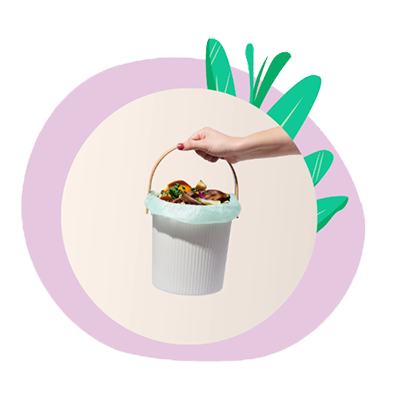


Our compostable products start their life with a promise—to keep the planet cool. Made with materials that demand less from our resources, they pave the way for a future that breathes easier, reducing our collective footprint one compostable item at a time.

Our compostables are certified non-toxic and free from harmful forever chemicals. In a world of endless choices, selecting our compostables means choosing a path that’s kind to your health and the planet’s well-being.

Fast-forward to decomposition, and our compostables are ahead of the curve, breaking down quicker than traditional materials, even in less-than-ideal conditions. By opting for compostables, we’re not just picking a product; we’re choosing a future where waste doesn’t outlive us.
Biodegradable simply means that disintegration will occur, without specifying an amount of time or what the end material may be. Technically, any material is biodegradable overtime and depends on the environment. Companies often use the term “biodegradable” to mislead consumers. It is illegal in the state of California to label a product as biodegradable without being substantiated by third-party testing.
Compostable materials must degrade at a certain rate into a nutrient-rich substance to be qualified. We consider “compostable” to be a legitimate way to measure and represent a product’s end-of-life impact on the environment.
Our compostable products are certified as compostable, not just biodegradable.
Contact your local waste management service to see if your city has a curbside composting program. Find more information on how to properly compost our products at the following links.
Industrial composting sites across the nation:
https://compostingcouncil.org/participants/
Independent businesses that specialize in compost pick-up:
https://compostnow.org/compost-services/
Find a composter near you: https://findacomposter.com/
Even if our products end up in a landfill, there are upstream benefits associated with our products which are made from renewable plant-based sources compared to virgin fossil-fuel derived plastics. Our products are totally non-toxic and leave no toxic residues.
